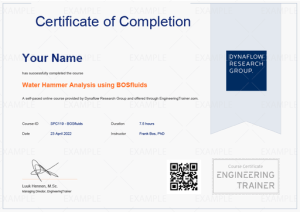
Parallel Programming
Training Courses Parallel Programming About The Course This course is a practical introduction to parallel programming. The course explains the basic concepts of programming for
DRG provides both a regular Jive introduction course and custom-made courses that are aimed at specific topics.
The introduction course takes four days and covers all essential topics to get started with Jive. The basis of this course is formed by the tutorials available on this web site. Of course, you can work through these tutorials on your own, but following a course has several advantages: it sets a schedule; it offers the opportunity to ask questions; it provides additional information that is not part of the tutorial; and it is a good occasion to meet other Jive users. The Jive courses by DRG are normally presented in or near Delft in The Netherlands, but they can also be presented elsewhere on request. If you would like to present a Jive training course yourself, please do so! This is not an activity that is exclusively reserved to DRG.
The Jive introduction course explains the essential concepts of developing Jive applications. In particular, it explains how Jive, and its underlying library Jem, is organised; it explains the logical and mathematical concepts on which Jive is based; and it shows how to use classes from Jive to build your applications. The course mixes theory with practical, hands-on exercises.
These exercises enable you to apply newly learned knowledge in smaller and larger contexts, and thus provide an opportunity to understand the classes provided by Jive.
The course ends with a step-by-step description of a complete non-linear application involving a structural damage model. This application could serve as a basis for developing your own Jive application. After completing the course, you should be able to find your way into the large collection of classes offered by Jive. You should be able to start using those classes to implement sophisticated, non-linear solution algorithms and material models.
Classroom
This course is scheduled for 4 work days. The dates of the course are organized upon inquiry.
This course is available in the classroom format.
Prerequisites and level
Intended For
Participants of the classroom course receive a personal physical certificate upon the completion of the course.
Example certificate:


Training Courses Parallel Programming About The Course This course is a practical introduction to parallel programming. The course explains the basic concepts of programming for

Training Courses Jive About The Course DRG provides both a regular Jive introduction course and custom-made courses that are aimed at specific topics. The introduction

Training Courses Advanced programming in C++ About The Course This four-day training course “Advanced programming in C++” by DRG is aimed at (self-taught) programmers in
Laan van Oversteen 20
6th floor
2289 CX Rijswijk
The Netherlands
© Dynaflow Research Group BV